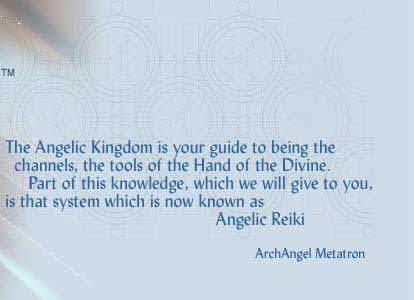Death and Dying, A Spiritual Perspective
by Kevin Core, 2006
Page 4 of 8
This is certainly what needs to happen because in our society we are very energetically encouraged to believe that what is before our eyes is the only thing that truly exists. There are all sorts of reasons for this, none of them to do with Spirit at all. It is more to do with how the society is structured, and why. It is part of the illusion which is created by this society, but it has a catastrophic effect on the whole of human consciousness because of all the fear and anger it anchors there.
Death itself is a process. Everybody goes through the same process, whether it's a person dying, a planet dying, a solar system dying, or a galaxy dying, or anything dying. The process of dying is a transition into higher level of existence. Whatever it is that is making that transition goes through a set of reactions; reactions to the event. A lady called Elizabeth Kubla Ross was a lady who did the foundation work in the 60s on death and dying in the West. She spent her life's work working with people who were dying and observed and helped them through that process, and tried to understand the process itself. She observed that when you are dying you transition through six emotional states. The first one is relief. This is relief that you actually know what is happening. Circumstances occur where somebody will actually tell you that a condition exists in your life which is going to bring that life to an end.
The next one is denial. This is the belief that what you've just been told is wrong. It cannot happen to you. Other people die, but how can this happen to you? You are not ready to die. You do not know how to do it. You do not know the rules.
The next one is blame. You give yourself a hard time for finding yourself in this situation.
Another is resentment. Why should this happen to me? Why can't it happen to that person over there, or that one over there?
Then there is despair, anger, frustration.
The other thing that comes in is grief. Your perception tells you that you are about to lose your life. Your life is who you are, who you perceive yourself to be, your identity; and you are about to lose it.
All of these emotions constantly arise, sometimes quite rapidly over a short period of time so it feels that you are on an emotional rollercoaster.
In the West this can be a traumatic experience because it is the one thing that is going to happen to all of us, and there is no manual. You feel totally disempowered because there is nowhere to go where somebody can tell you how to deal with the situation. This is where the fear comes in. Nobody wants to talk to you about it, and nobody will tell you how to do it well. The other hurtful thing is that most of your friends and family will not want to go anywhere near it. They will not want to talk about it in your presence, because it will bring up their own fears of their own mortality. So you find yourself totally alone, facing the most important thing that will ever happen to you in this lifetime, with no help coming your way at all. This is why the spiritual perspective on death now needs to be circulated worldwide to those who want to hear.
So the person who is dying is going through the most traumatic experience they will ever have in that lifetime with nobody to give them any support. This is where, in the future, people who choose to do this work in service will help these people and dispel the energies of fear surrounding death in the West. We know the process. Elizabeth Kubla Ross knew the process. The Tibetans have known the process of death and dying since Atlantian times, 14,500 years ago, but this knowledge is just not put out in the West. However, this is now changing. You can get the book "The Tibetan Book of Living and Dying" by Sogyal Rinpoche which gives the knowledge held by the Tibetans about the process of passing through the veils of death. We can read and understand this material, become familiar with the process, and help these people get through it.
As I have said, this process has been known for thousands of years. Every spiritual tradition in the world has, within its mythological or mystical structure, the knowledge of how to tackle the death process. The Hindus have it, the Tibetans have it; it was taught in Greece using the allegories of Hades, Persephone, Demeter, of crossing the river Styx by boat and paying for that journey with two coins. All of that teaching came out of Ancient Egypt.
In the Egyptian tradition, the 64 Neteru, are the Egyptian gods or archetypes of consciousness. In the last group of eight of these gods, the name is given the Duat, and that group of God's are the ones who guide or process the being who is going through the dying experience; all who are passing through the Underworld. In the Egyptian Book of the Dead a full description is given by the Royal Scribe Ani of 21 levels of the Underworld, each with its pylon or entrance, guarded by its dual guardians. In psychological terms these texts give a complete description of the levels of the unconscious mind that have to be transmitted through successfully to raise a consciousness to the next higher vibration.
The Underworld in any tradition, including the Tibetan even though they call it the Bardo, is how to get through that space that you have to go through in order to make the transition to the next level. So the knowledge of how to pass through the veils of death is totally cataloged in any one of these traditions. Reading any one of these instructions will show you how to pass through the veils of death; it will give you the rules and show you what will happen. It is what happens to everybody, whether that body is a person, a planet, a solar system, or a galaxy etc. The process of death and dying follows known archetypes.
All of these traditions encourage you, that as part of your spiritual practice, you should practice for the day that you die, so that it does not come as a big shock, and you enter the space of the Underworld totally unprepared.
In the West, if you are going for the most important interview in your lifetime, wouldn't you prepare yourself beforehand for the interview? If you were going to a foreign country where you had to negotiate hard terrain, wouldn't you buy a map and study it first? In relation to death and dying in the West not many people go there at all, even people doing spiritual work, but this is a spiritual practice that is well worth doing.
We all do meditational practices where we visualize what it would be like to be in this place or that, how it would feel, what we would see etc. None of us do spiritual practices about what would it be like when we take our last breath, and where we will be. What will it be actually like when I take my last breath and leave this incarnation? None of us do this, and yet it is one of the most profound meditations you will ever do.
If you do this meditation it will totally prepare you for the experience because even though you may have been doing meditation for 30 years, if death catches you unaware, the moment you leave that incarnation and your mind is not in the moment, you may find yourself in a place you may not wish to be. You could have done 30 years of meditation, sitting in blissful states, and then just because you walked across the road and never saw the bus, you find yourself in a place on the 4th Dimension you are not prepared for. You may have been thinking about doing the lottery when suddenly you find yourself in the 4th dimension. What was on your consciousness? I need money. So what will be the environment you find yourself in that space? Las Vegas in the sky, pulling that handle for thousands of years.
But seriously! It is well worth doing this daily practice of contemplating where you wished to end up in consciousness at the moment of death. This is a daily practice undertaken by the Hindus. So we should all take on board that this is a necessary practice for us to consider. If you did this on a daily basis, and you did find yourself leaving the incarnation suddenly, you have already prepared the way, your mind knows the path it has to take and so nothing is left to chance. Death never catches you unaware, because you have done it so many times as a meditation that you already know what to do.





